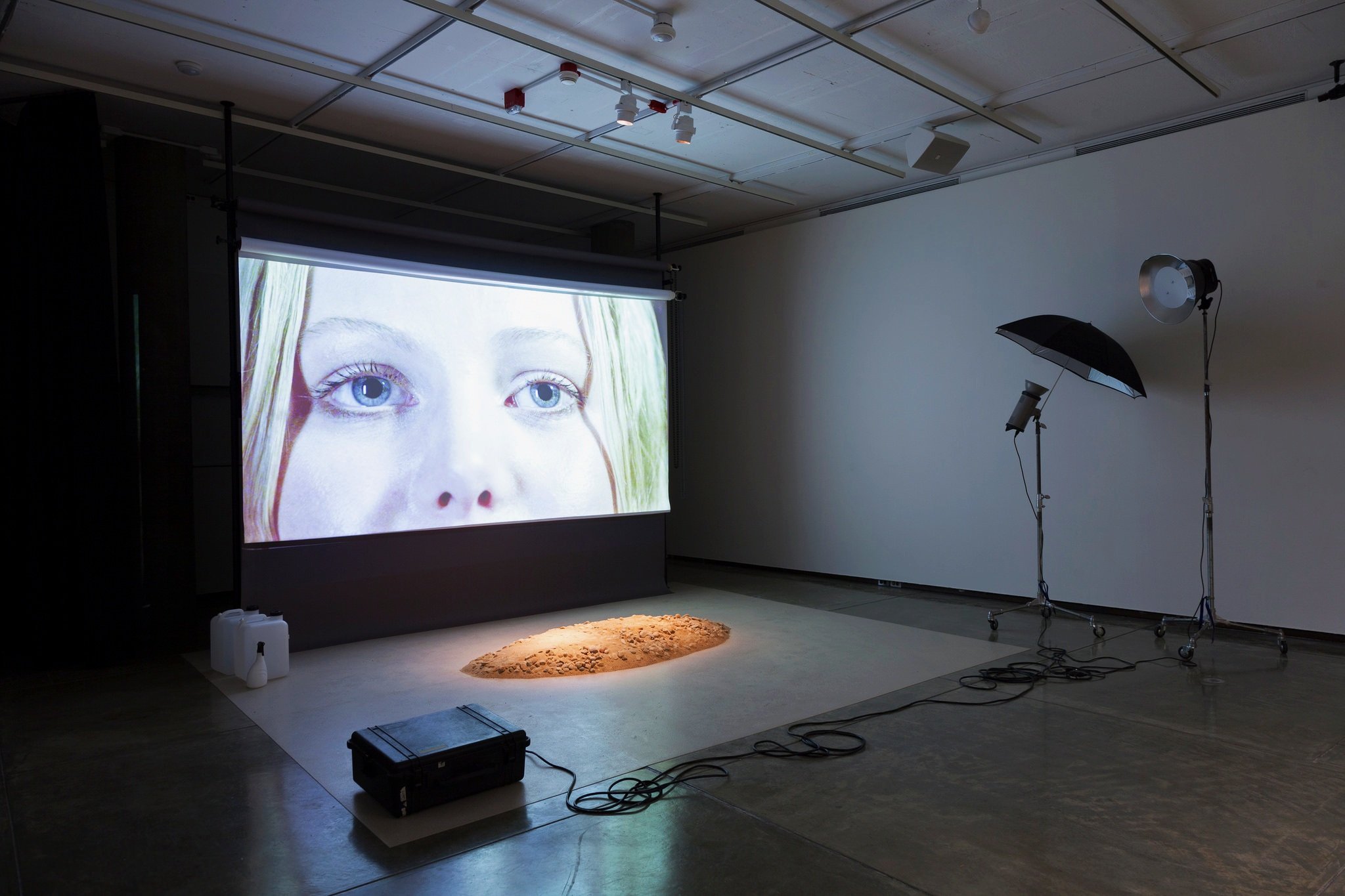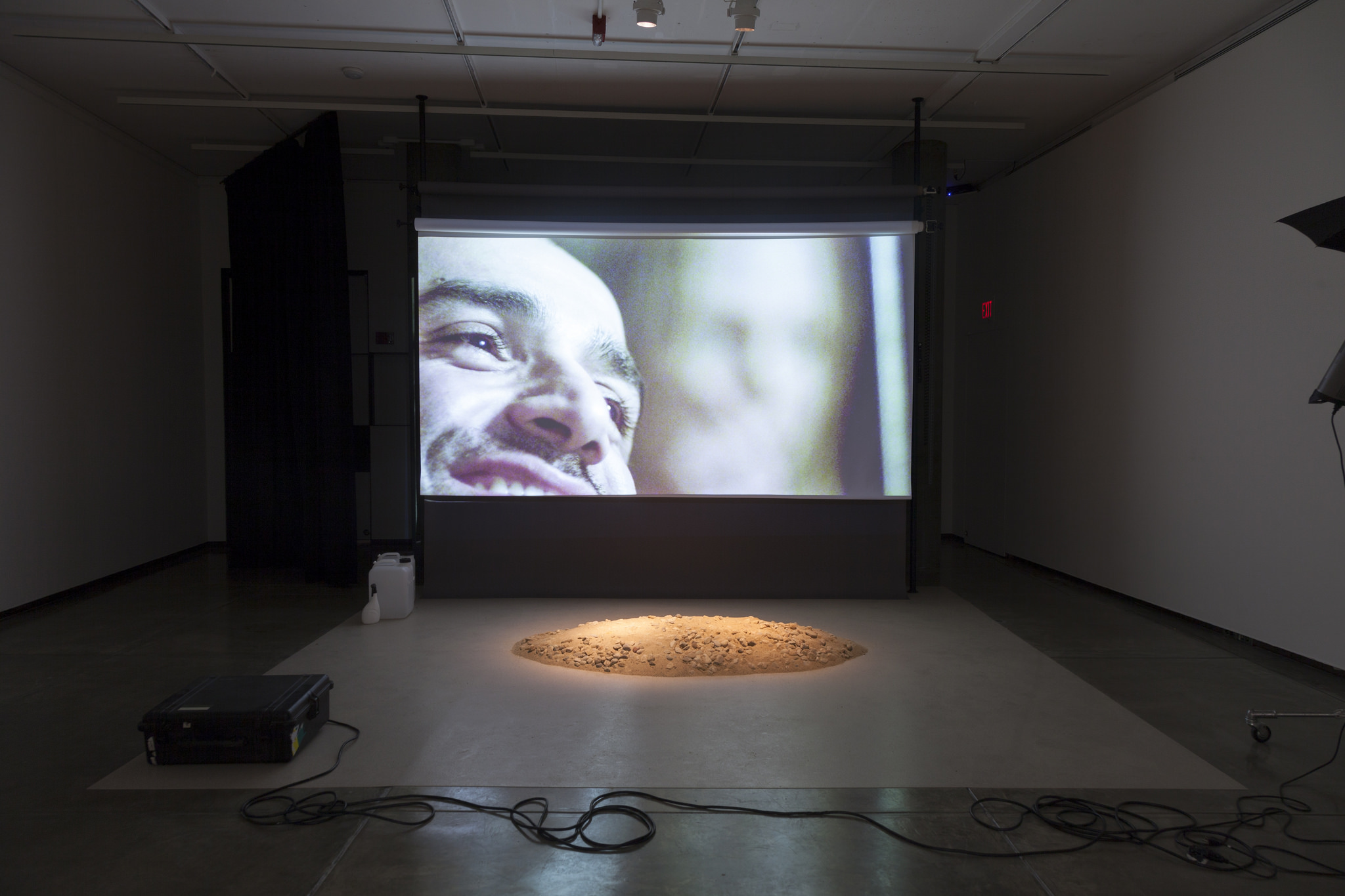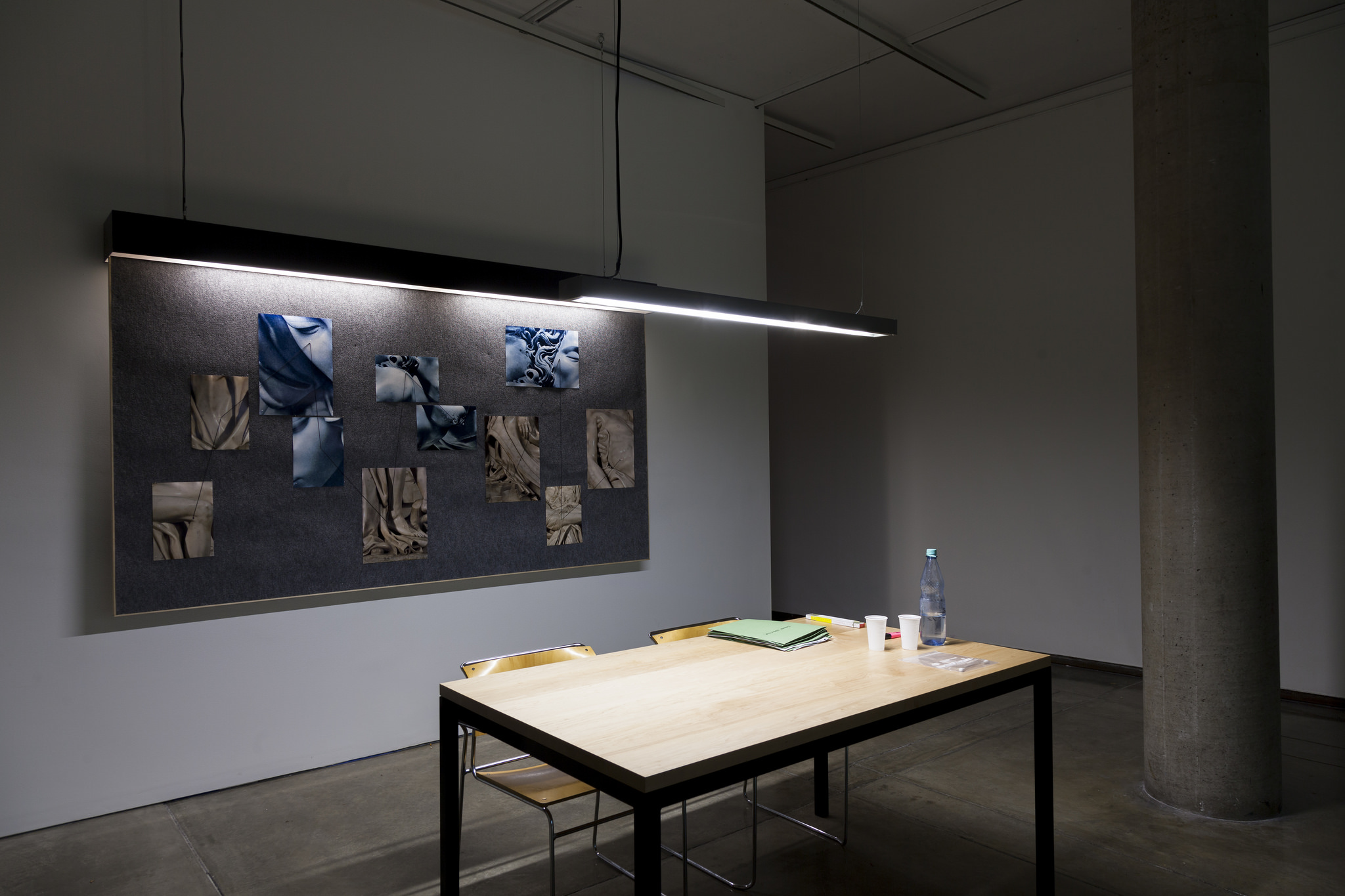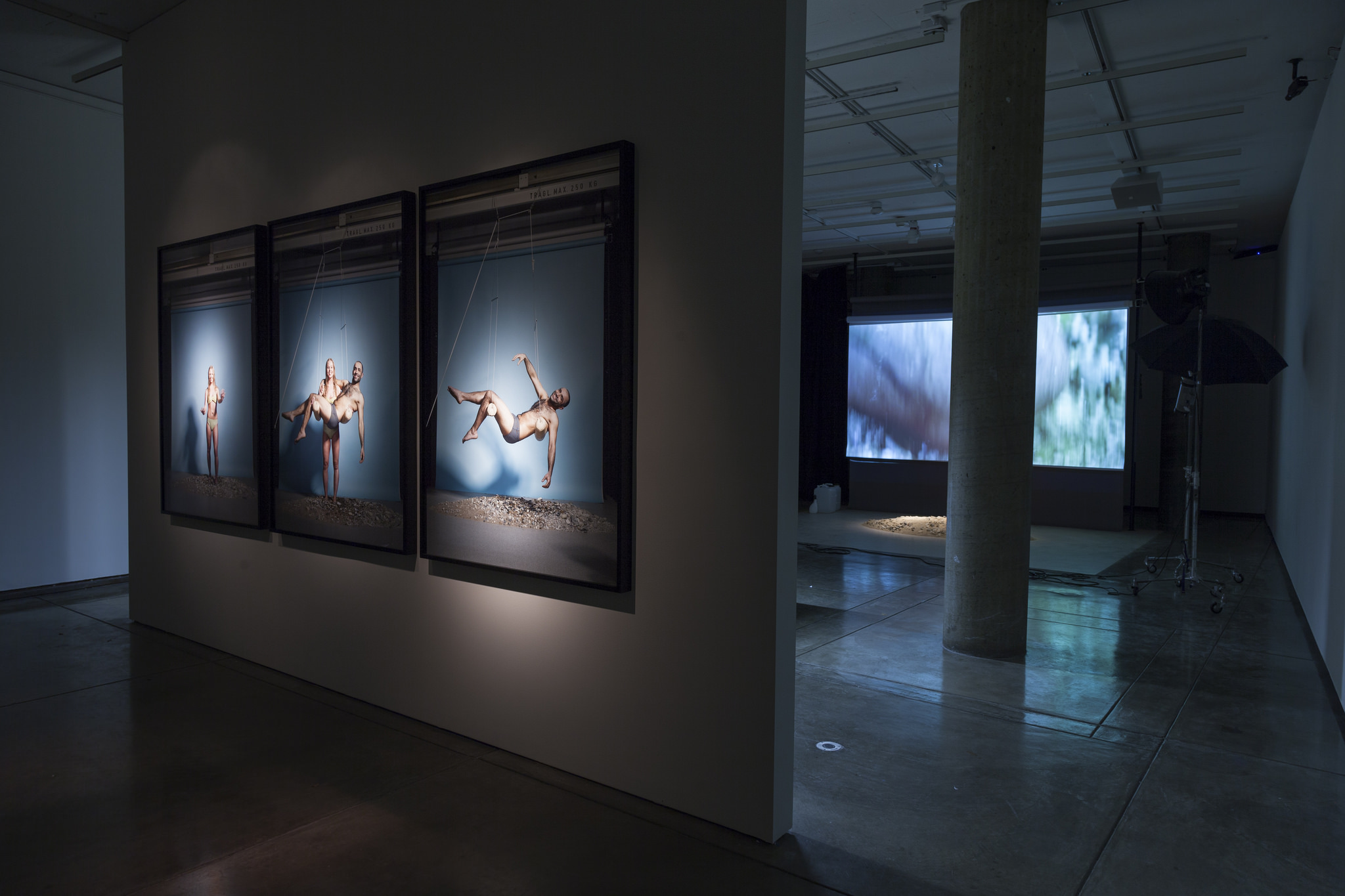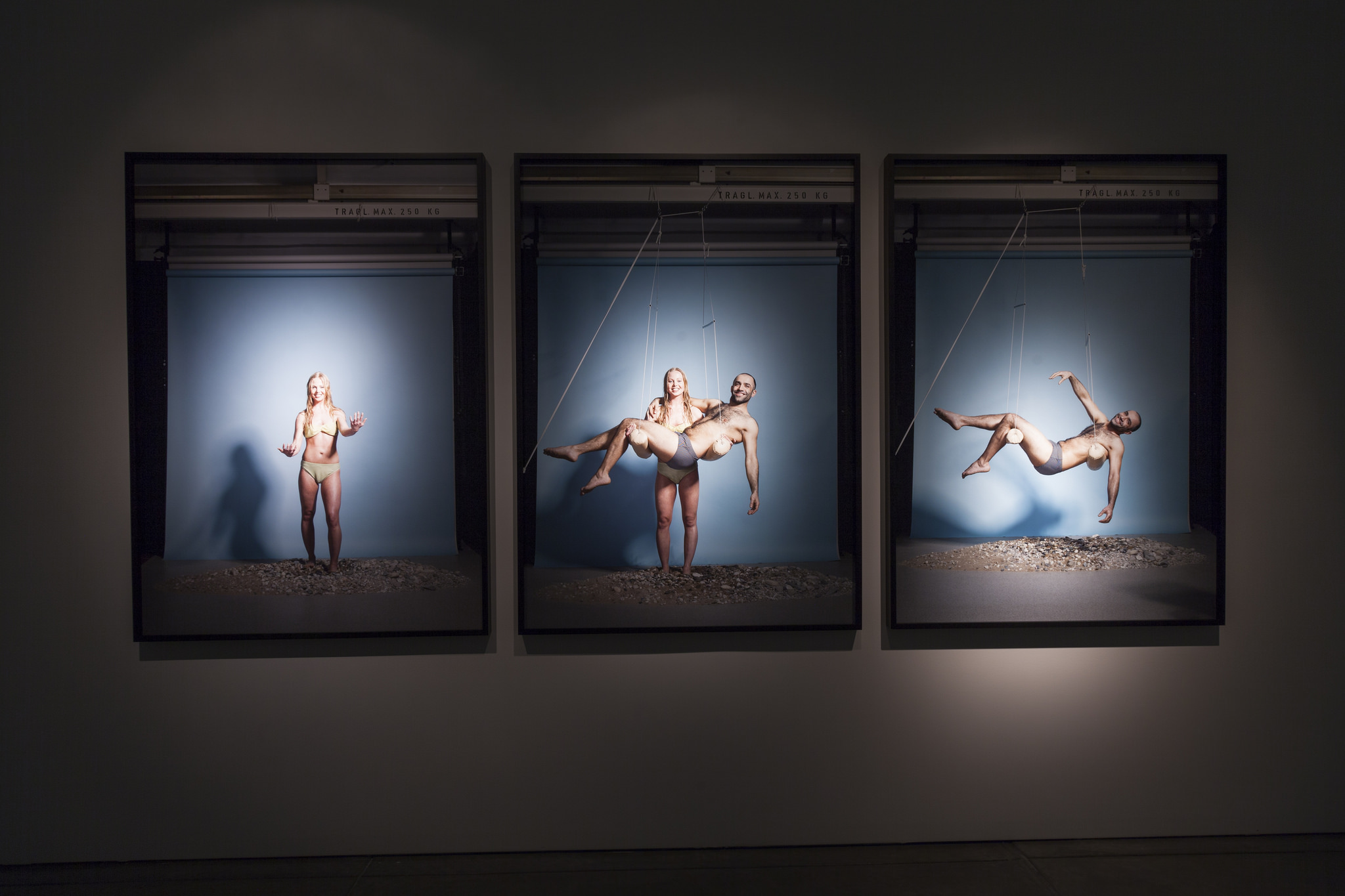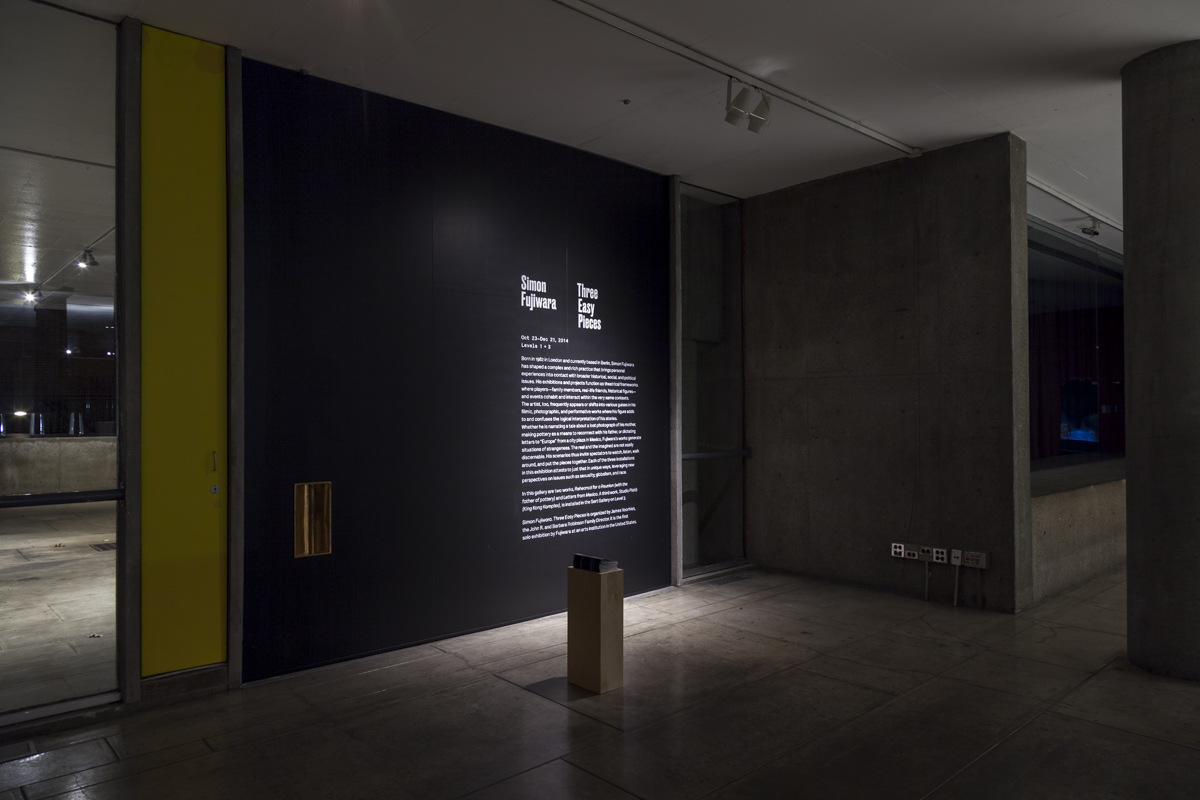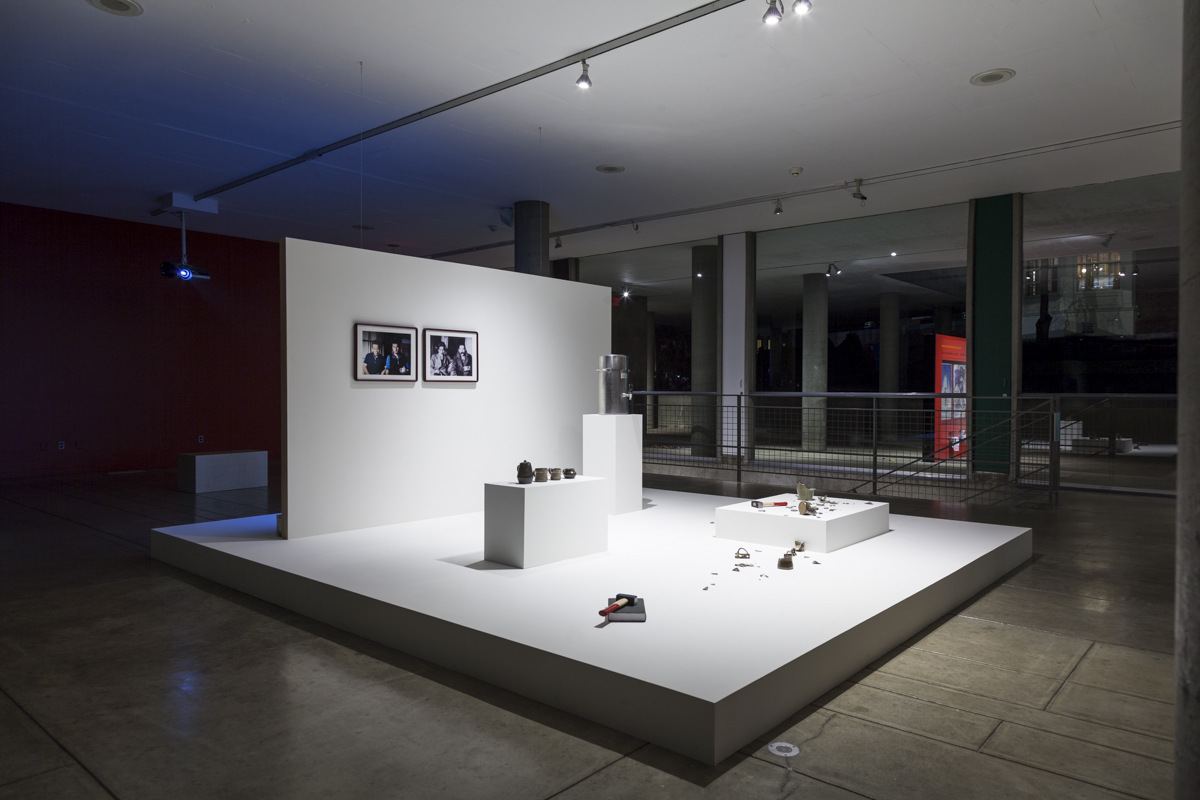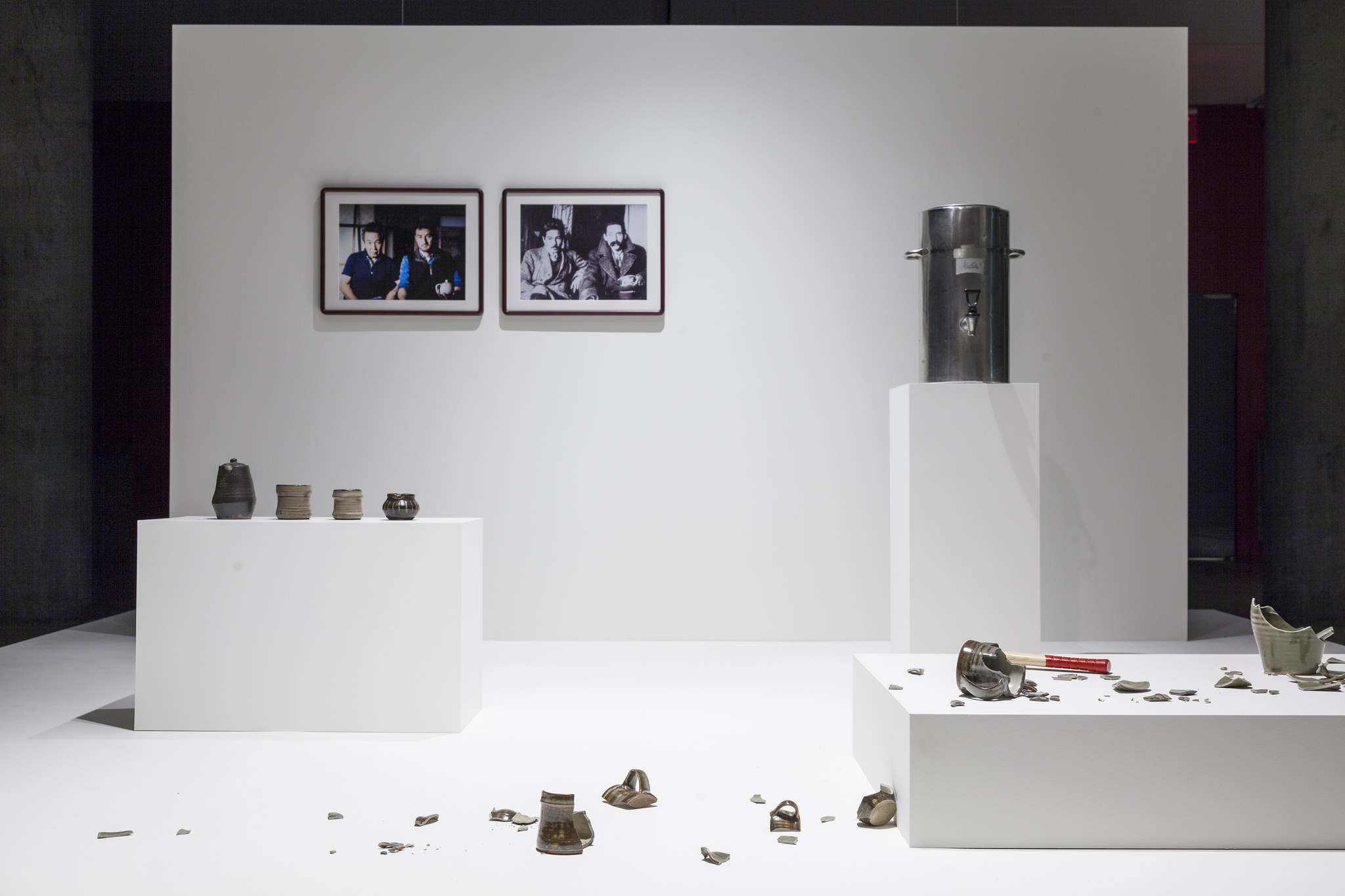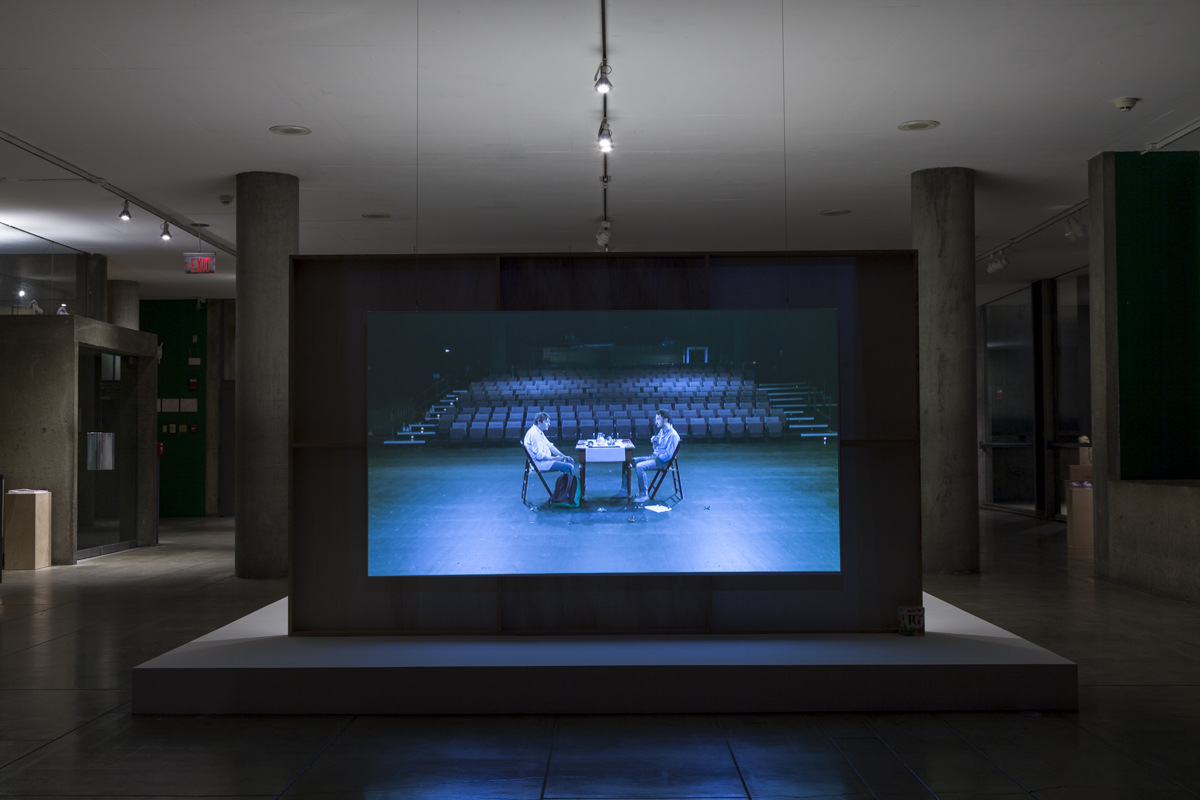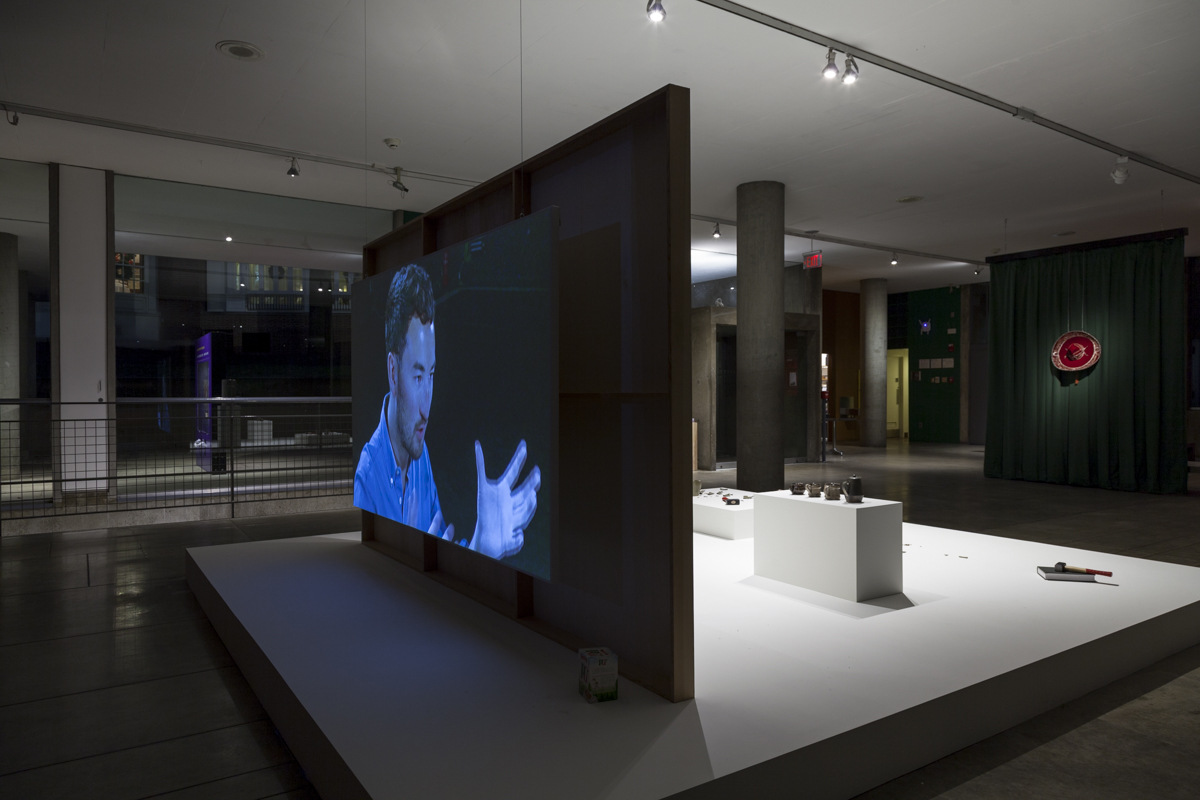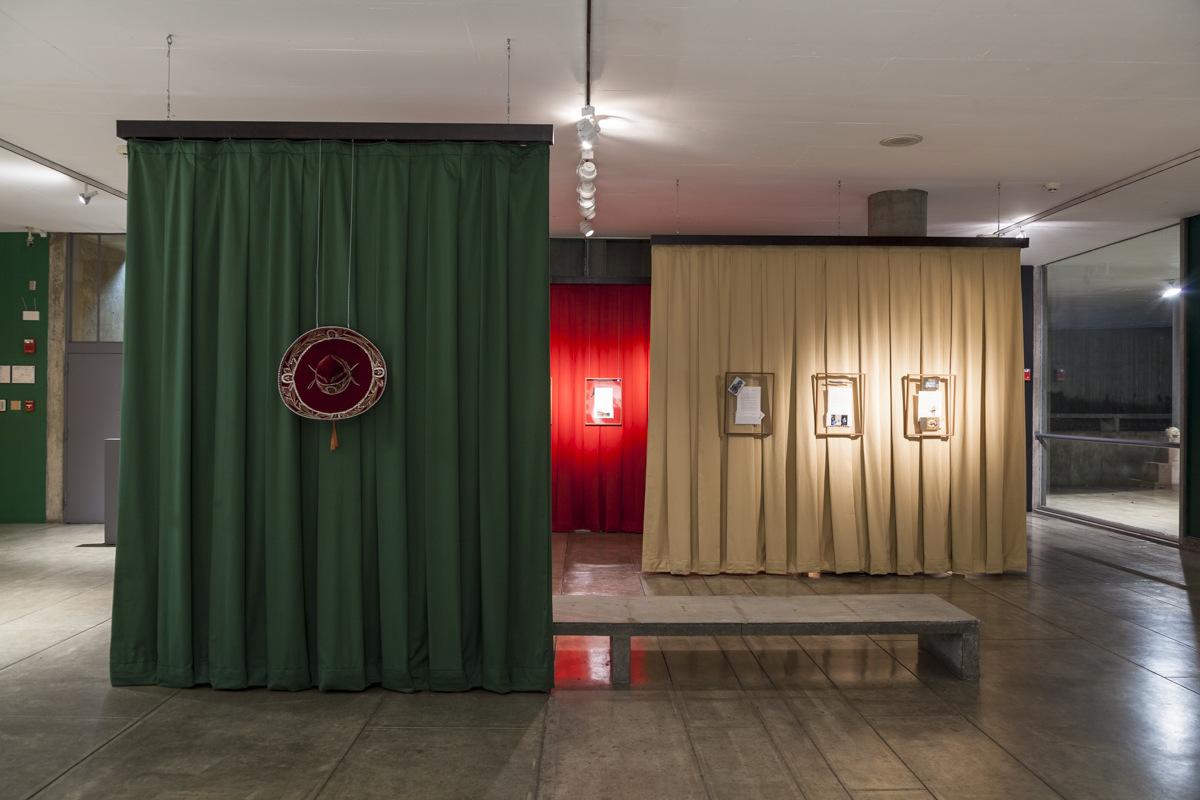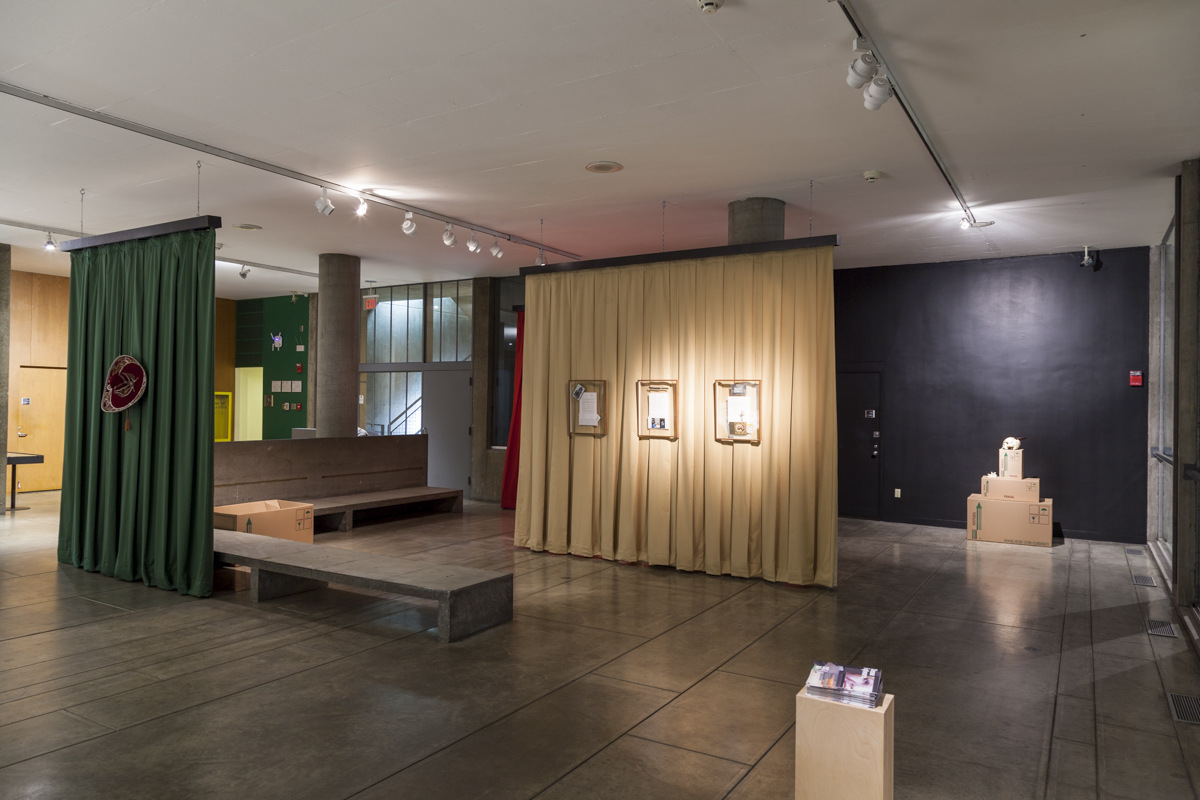Simon Fujiwara: Three Easy Pieces

A solo exhibition comprised of three installations by Simon Fujiwara interweaving a range of cultural factors that shape social and racial identity.
Curated by James Voorhies
Carpenter Center for the Visual Arts
Harvard University, Cambridge, MA
October 23–December 21, 2014
Made possible with funding and staff of Harvard University’s Carpenter Center for the Visual Arts; realized within my responsibilities as Director and Curator of the Carpenter Center for the Visual Arts
Questions about the systemic factors that influence human behavior are at the heart of Simon Fujiwara’s compelling and deeply engaging practice, including the three works presented in the exhibition Simon Fujiwara: Three Easy Pieces. In works of art that conflate fact and fiction Fujiwara raises questions about gender identity, sexuality, libidinal desire, belonging and racial profiling. Bringing personal experiences into contact with broader historical, social, and political issues, his work often functions as theatrical frameworks where players—family members, friends, historical figures—cohabit and interact within the very same historical and social contexts.
In Studio Pietà (King Kong Komplex), for example, the artist restaged elements remembered from a childhood photograph, now lost. In the photograph, his bikini-clad British mother was held aloft in the arms of a Lebanese boyfriend on a Beirut beach by the Casino du Liban, where she performed as a cabaret dancer. The installation included the physical evidence and a video of the attempts to recast the lost photograph. Fact and fiction combined into an enthralling process of reconstructing the photograph from personal memory, which leads to inquiries on the relationship between the West and the Middle East, touching on racial profiling, exoticism, and terrorism.
Rehearsal for a Reunion (with the father of pottery) was based on the artist’s trip to Japan to reconnect with his estranged Japanese father through the collective act of making a tea set in a pottery workshop. The installation at the Carpenter Center featured artifacts from this experience and a video and raises questions about authenticity, identity, and our innate desire for conclusion.
Letters from Mexico, inspired by the 16th-century Letters from Mexico by conquistador Hernán Cortés, featured objects and texts that chronicle Fujiwara’s experiences during a visit to Mexico which coincided with dual celebrations marking its independence from Spain and its revolution. Fujiwara’s letters, translated phonetically by street typists in Mexico City, alluded to what is lost in translation as vestiges of colonialism linger in other socioeconomic forms in the relationship between Europe and Mexico.
Born in 1982 in London and currently based in Berlin, Simon Fujiwara interweaves performance, film, sculpture, and text into highly immersive environmental installations. Bringing personal experiences (both real and imagined) into contact with broader historical, social, and political topics, his expansive practice has been described as an “autobiographical journey through the architecture of modern life—constantly rebuilt as it is retold.”
Booklet
...
